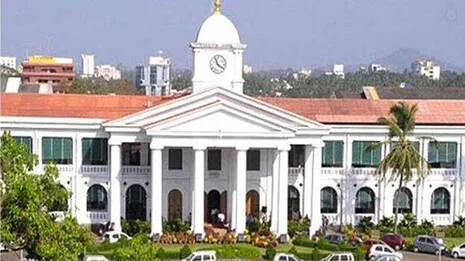
The government has released advice from a science panel saying cutting methane 14-15 percent by 2050 could be enough to stabilise global warming from the country's cows and sheep at roughly today's levels. But it has not decided whether it will lower the country's target. The Minister for Agriculture Todd McLay said the government-initiated review of New Zealand's methane target has been released for public discussion and debate but it will not yet make a decision on its findings.
A science panel was asked to look at whether New Zealand's 2050 climate target - of cutting methane emissions by 24 to 47 percent of 2017 levels - was consistent with achieving "no added warming" from methane. But debate is raging over whether "no added warming" is a good target - something the panel was not allowed to consider. Yesterday, the review panel released advice saying if other countries took action to keep the planet inside 1.

5C of heating, 24 percent reductions would be needed to New Zealand's methane output to stabilise heating from methane at 2017 levels. If other countries were on track for 2C, 14-15 percent methane cuts would be needed. Other countries' emissions levels affect how potent or not New Zealand's methane emissions are at trapping heat, which is why the figure varies based on what others are doing.
Farmers support aiming for 'no added heating', but climate advocates say its a smokescreen to lower ambition and shirk responsibility for the country's biggest emitter. McLay said the government would carefully consider what level of methane it should choose. The Climate Change Commission's advice on the 2050 target is also expected any day now, and, based on its draft discussion document, is likely to advise no weakening of targets is justified.
The commission has a wider remit and can consider the merits of whether aiming for 'no added warming' is a strong enough target for New Zealand's farming sector after looking at impacts on trade and other factors. The commission has previously said lowering the methane target would place more of a burden on other sectors of the economy. Farming groups welcomed the panel's findings, with Beef + Lamb saying the Government should lower the methane target in in with the panel review.
"Methane should only be asked to do what is being asked of the other gases, which is to achieve no additional warming." "The independent panel finding is that reductions in the range of 14-24 percent by 2050 would see methane not add any additional warming from 2017 levels, depending on how quickly the rest of the world reduces its emissions," said the group. "The independent panel's findings are an improvement on the current methane targets but would still be a stretch for the sector.
" Federated Farmers said the review showed the current target was too high. "Federated Farmers opposed the current 2050 methane reduction target of 24-47 percent from day one, because we knew there was absolutely no credible science to underpin it." The Green Party said the review was a smokescreen to lower climate ambition.
"There's a reason the government chose not to give this job to the independent, expert Climate Change Commission, but instead set up their own Ministerial pet project," said co-leader Chloe Swarbrick. "The Climate Change Commission and Parliamentary Commissioner for the Environment have explained time and again that a 'no additional warming' approach would mean every other part of our society and economy will carry a far higher burden, or mean reducing our necessary contribution to the global fight for climate action." Greenpeace said reducing methane was a "critical lever" to slow global heating and criticised the government for starting the review at the request of livestock groups.
The methane review was on Federated Farmers' pre-election wishlist before being adopted by the coalition. Both sides accused the other of confusing science with politics. Greenpeace said the review was designed to "disguise political ideology as scientific fact" - while Federated Farmers said the current targets were "not scientific" and "highly political targets set by politicians.
" Government officials at the ministries for primary industries and the environment previously told McClay that setting a target was primarily a political matter, although the review would give them an update on the science. "Some proponents of a no additional warming target frame it as more "scientifically robust" than the current biogenic methane target," officials told McLay and Climate Change Minister Simon Watts. "In practice, assessing the merits of this target is not principally a question of science.
Whether a no additional warming target "makes sense" depends on the government's temperature goals, concerns about equity, desire to align with international agreements, and so on. It also depends on the base year, end date chosen for the target, and future warming scenarios considered," they said. While groups such as Lawyers for Climate Action have called the 'no added warming' approach "self serving" and "unfair" to nations with developed farming industries such as New Zealand, farming groups and some climate scientists say it levels the playing field between emitters of methane and carbon dioxide.
Unlikely methane, carbon dioxide is so long-lived that even the strongest reduction efforts can only stabilise heating at today's levels. Turning down methane, by contrast, reduces planetary heating fairly quickly. Some farmers say that methane emitters should have to reduce their heating since carbon dioxide emitters aren't going to be able to lower theirs, even if they drop carbon dioxide to zero.
The government's emissions reduction plan for 2025-2030 is due any day, however the 2030 target for methane of 10 percent reductions covering that period is unaffected by the review. Sign up for Ngā Pitopito Kōrero, a daily newsletter curated by our editors and delivered straight to your inbox every weekday..














